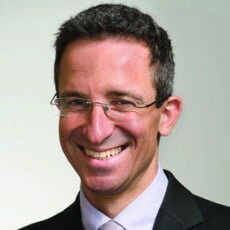by Tal Ben-Shahar
In a perfect world, we would be able to engage in meaningful and pleasurable activities all day, every day. But for most people, that is not possible. A single parent doesn’t always have the luxury of leaving a well-paying job she dislikes for more gratifying work that pays less. Getting food on the table and providing them with shelter and a decent education are her top priorities.
Others who have more choice than the single parent can justifiably forgo pleasure in the short term for the prospect of future rewards. A fresh college graduate, for instance, may want to acquire business experience working as an investment banker for two years, even though she does not enjoy spending 14 hours a day in front of the computer. As long as she keeps in mind that happiness is the highest on the hierarchy of her goals and she doesn’t fall into the trap of the rat racer—postponing gratification indefinitely—staying the two years may be the right thing for her.
Most people, rich or poor, young or old, go through spells of happiness drought. I have not met many students who enjoy exam period; and even in the most engaging workplaces, some projects are less interesting than others. Whether it’s out of necessity or by choice, for most of us there are periods when much of what we do doesn’t afford us satisfaction. Fortunately, this doesn’t mean that we need to resign ourselves to unhappiness during these times—be it for the month of exams or a dull period at work, for the two years while we gain work experience, or the 22 years during which our children need our financial support.
Research by Kennon Sheldon and Linda Houser-Marko that pursuing self-concordant goals—engaging in activities that are personally meaningful—impacts our experience in other areas, not directly related to these activities. According to Sheldon and Houser-Marko, “Those people who can identify sets of goals that well represent their implicit interests and values are indeed able to function more efficiently, flexibly, and integratively across all areas of their lives.” The confidence, the passion, the sense of fulfillment they gained from such experiences spilled over to other areas of their lives.
Meaningful and pleasurable activities can function like a candle in a dark room. Just as it takes a small flame or two to light up an entire physical space, one or two happy experiences during an otherwise uninspiring period can transform our general state. I call these brief but transforming experiences happiness boosters—activities, lasting anywhere from a few minutes to a few hours, that provide us with both meaning and pleasure.
Boosting Your Happiness
What are your happiness boosters? What brief activities can rejuvenate you by providing you with both meaning and pleasure? Generate a list of happiness boosters that you can pursue throughout your week. These can include “general” boosters that you can do as a matter of routine (spending time with your family and friends, pleasure reading, and so on) as well as “exploratory” boosters that can help you find out whether to introduce a more significant change to your life (volunteering at a school once a week, for instance).
This post is adapted from Happier: Learn the Secrets to to Daily Joy and Lasting Fulfillment, by Tal Ben-Shahar, PhD. Copyright ©2007, The McGraw-Hill Companies. Reprinted with permission from the publisher.
Dr. Tal Ben-Shahar, Co-founder of WholeBeing Institute, is an author and lecturer who taught the largest course at Harvard on “Positive Psychology” and the third largest on “The Psychology of Leadership”—with a total of over 1,400 students. Author of Happier: Learn the Secrets to Daily Joy and Lasting Fulfillment, he consults and lectures around the world to corporate executives, the general public, and at-risk populations on topics that include happiness, self-esteem, resilience, goal setting, mindfulness, and leadership. He holds a doctorate in organizational behavior and a bachelor’s degree in philosophy and psychology from Harvard.


 Dr. Tal Ben-Shahar, Co-founder of WholeBeing Institute, is an author and lecturer who taught the largest course at Harvard on “Positive Psychology” and the third largest on “The Psychology of Leadership”—with a total of over 1,400 students. Author of Happier: Learn the Secrets to Daily Joy and Lasting Fulfillment, he consults and lectures around the world to corporate executives, the general public, and at-risk populations on topics that include happiness, self-esteem, resilience, goal setting, mindfulness, and leadership. He holds a doctorate in organizational behavior and a bachelor’s degree in philosophy and psychology from Harvard.
Dr. Tal Ben-Shahar, Co-founder of WholeBeing Institute, is an author and lecturer who taught the largest course at Harvard on “Positive Psychology” and the third largest on “The Psychology of Leadership”—with a total of over 1,400 students. Author of Happier: Learn the Secrets to Daily Joy and Lasting Fulfillment, he consults and lectures around the world to corporate executives, the general public, and at-risk populations on topics that include happiness, self-esteem, resilience, goal setting, mindfulness, and leadership. He holds a doctorate in organizational behavior and a bachelor’s degree in philosophy and psychology from Harvard.







My happiness booster is doing the Certificate in Positive Psychology! Thank you,
Thank you, Karen! We are so pleased you are enjoying the CiPP program!